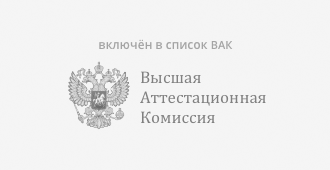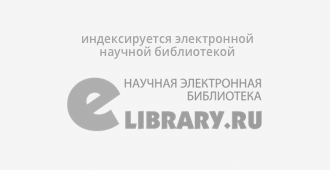Regulatory and legal support for the subsurface waste management and the use of secondary mineral resources in the context of the development of a circular economy
Keywords:
Closed-cycle economy, mining, subsurface use waste, secondary mineral resources, regulatory legal acts, “green” business, economic incentive.Abstract
The article emphasizes the importance of subsurface waste management and the use of secondary mineral resources in the conditions, on the one hand, of the economic specialization of a number of macro-regions of our country in the extraction of minerals, on the other – the need to take into account the global principles of the development of the circular economy. The authors focused on the controversial issues of regulatory support for the management of circular models in subsurface use. For the convenience of the analysis, the authors distinguish three interacting areas of activity: environmental protection, related to environmental protection issues, including management of production and consumption waste; natural resources, focused on subsurface use, and organizational and economic, based on the organization and promotion of “green” business. Based on their own experience and the opinions of other scientists and experts in this field of research, the authors identify contradictory points in the Russian environmental and natural resource law that do not allow enterprises of the mineral resource complex to fully manage the generated and accumulated subsurface use waste. The authors analyze draft laws in this area, highlighting positive and negative points. The authors of the article dwell on the problems of delineating the spheres of action of the minerals legislation and legislation on production and consumption wastes, the differences between subsurface use waste and secondary mineral resources, the presence of a large number of ownerless rock dumps and waste from processing industries. A special place in the study is occupied by the issues of business organization in the field of subsurface waste management and the use of secondary mineral resources, as well as its economic stimulation by the state. In conclusion, the authors identify steps to improve the regulatory support for the implementation of the principles of the circular economy in the conditions of the mineral resource complex.
Downloads
Metrics
References
Brais Suarez-Eiroaa et al. Operational principles of circular economy for sustainable development: Linking theory and practice /Brais Suarez-Eiroaa, Emilio Fernandeza, Gonzalo Mendez-Martinezb, David Soto-Onate // Journal of Cleaner Production. 2019. P. 952-961. [Электронный ресурс]. Режим доступа: https://doi.org/10.1016/j.jclepro.2018.12.271 (дата обращения: 06.07.2021).
Pдivi H.-M. Kinnunen, Anna H. Kaksonen. Towards circular economy in mining: Opportunities and bottlenecks for tailings valorization // Journal of Cleaner Production, Volume 228, 10 August 2019, Pages 153-160. [Электронный ресурс]. Режим доступа: https://doi.org/10.1016/j.jclepro.2019.04.171 (дата обращения: 06.07.2021).
Sвnia da Costa Fernandes, Daniela C.A. Pigosso, Tim C. McAloone, Henrique Rozenfeld / Towards product-service system oriented to circular economy: A systematic review of value proposition design approaches // Journal of Cleaner Production, Volume 257, 1 June 2020. [Электронный ресурс]. Режим доступа: https://doi.org/10.1016/j.jclepro.2020.120507 (дата обращения: 06.07.2021).
Шамордин Р.О., Миркеримова Н.Ф. О критериях разграничения предметов правового регулирования законодательства об отходах производства и потребления и законодательства о недрах // Минеральные ресурсы России. Экономика и управление. 2019. № 2. С. 65–69.
Миркеримова Н.Ф. О некоторых подходах к гармонизации требований законодательства об отходах производства и потребления и отходах недропользования // Минеральные ресурсы России. Экономика и управление. 2020. № 4–5. С. 86–91.
Важенин Ю.И., Орлов М.В., Хакимов Б.В. Правовое регулирование использования отвалов горных пород и отходов перерабатывающих производств // Минеральные ресурсы России. Экономика и управление. 2020. № 2. С. 56–60.
Рациональное использование вторичных минеральных ресурсов в условиях экологизации и внедрения наилучших доступных технологий: монография / коллектив авторов; под науч. ред. д. э. н., проф. Ф. Д. Ларичкина, д. э. н., проф. В.А. Кныша. Апатиты: Изд-во ФИЦ КНЦ РАН, 2019. 252 с.
Уланов А.Ю., Бахмин В.И., Коробова О.С. О совершенствовании системы обращения с отходами недропользования // ГИАБ. Горный информационно-аналитический бюллетень. 2020. № 6. С. 48–55. DOI: 10.25018/0236-1493-2020-6-0-48-55.
Дондоков Б.С. Кластеры или ТПК: сходства и различия // Горный информационно-аналитический бюллетень (научно-технический журнал). 2015. № 1. С. 381–385.
Хохряков А.В., Ларионова И.В., Москвина О.А., Цейтлин Е.М. Системный подход к обеспечению экологической безопасности в горной промышленности // Горный информационно-аналитический бюллетень. 2020. № 3–1. С. 501–517. DOI 10.25018/0236-1493-2020-31-0-501-517
Downloads
Published
How to Cite
Issue
Section
Categories
License
Copyright (c) 2021 Л.А. Мочалова, О.С. Еремеева

This work is licensed under a Creative Commons Attribution-NonCommercial-NoDerivatives 4.0 International License.
Авторы, публикующие произведения в журнале «Дискуссия», соглашаются со следующими условиями:
- Авторы сохраняют за собой авторское право и предоставляют журналу право первой публикации произведения, одновременно лицензированной в соответствии с лицензией Creative Commons Attribution, позволяющей другим лицам пользоваться произведением с подтверждением авторства и первоначальной публикации в журнале «Дискуссия».
- Авторы вправе заключать с иными лицами лицензионные договоры на условиях простой (неисключительной) лицензии на использование опубликованного в журнале «Дискуссия» произведения (например, размещение его в базах данных университетов, публикация в книге), со ссылкой на его оригинальную публикацию в этом журнале.
- Автор гарантирует, что является правообладателем всех материалов, предоставляемых в редакцию, и что исключительные права на данные материалы не переданы или не предоставлены другим лицам.
- Авторам разрешено и рекомендуется размещать свое произведение в Интернете до и во время процесса подачи, поскольку это может привести к продуктивному обмену, а также к более раннему и более широкому цитированию опубликованных работ.
С момента загрузки произведения и сопроводительных материалов через раздел "Отправка материалов", автор полностью и безоговорочно принимает (акцептует) публичную оферту о заключении авторского соглашения об опубликовании произведения. В соотвтетствии с этим соглашением автор предоставляет издателю на безвозмездной основе неисключительную лицензию на использование созданного автором произведения.
С момента получения произведения и прилагаемых к нему материалов журнал "Дискуссия" вправе использовать полученные произведения без ограничений по своему усмотрению и в пределах всего срока действия исключительных прав, но с обязательным указанием имени автора (авторов) произведения, в том числе публиковать произведения (полностью или в сокращении) на территории всего мира, переводить на другие языки, направлять в репозитории научной информации, размещать в сети Интернет и использовать другими законными способами.









